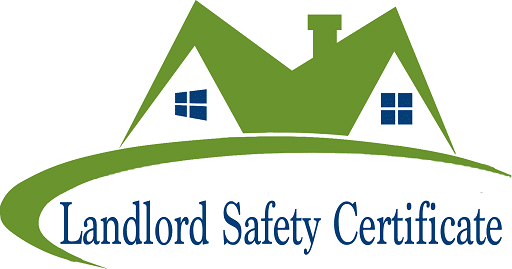
Managing rental properties in London requires strict compliance. Landlords must complete gas safety checks, arrange electrical inspections, and provide proof when needed. Yet, many still ask: should tenants receive copies of these reports? The law guarantees tenant certificate access for some documents, while others remain less defined. Still, being transparent builds trust, prevents disputes, and protects landlords.
This guide explains why sharing safety reports matters, highlighting tenant certificate access and how to create a clear landlord document policy in London’s rental market.
UK law clearly outlines rules for safety documents, and compliance is not optional. For instance, landlords must provide tenants with a valid Gas Safety Certificate before move-in. In addition, they must also share an Energy Performance Certificate (EPC). Together, these fall directly under tenant certificate access obligations.
However, other documents—such as Electrical Installation Condition Reports (EICRs) or fire safety assessments—are not always required unless tenants specifically request them. Yet, in London, where councils often carry out strict inspections, tenants have become increasingly aware of their rights and frequently ask for copies.
By offering these documents upfront, landlords not only reduce disputes but also demonstrate transparency. Moreover, this proactive approach strengthens trust, smooths relationships, and helps landlords avoid unnecessary legal complications.
A clear landlord document policy helps landlords stay organised and consistent. Without a written policy, decisions about which documents to share may vary, causing confusion or mistrust among tenants.
An effective landlord document policy outlines:
• Which safety reports must always be provided.
• Which reports can be offered upon request.
• How documents will be stored, updated, and delivered.
In London’s competitive rental market, such a policy demonstrates professionalism. Tenants value landlords who act responsibly and maintain transparency. By putting a strong landlord document policy in place, landlords build credibility and reduce risks of tenant disputes.
Trust is a cornerstone of the landlord–tenant relationship. Tenants who feel confident about property safety are more likely to stay long-term. Offering tenant certificate access is one of the easiest ways to build this trust.
For example, if tenants receive copies of gas safety records, EICRs, or fire safety documents, they see that the landlord values their safety. This approach also reassures them that the landlord has nothing to hide. In a city like London, where rental competition is high, transparency can set landlords apart from others.
Proactive tenant certificate access not only strengthens trust but also reduces complaints and improves compliance outcomes.
A well-structured landlord document policy also protects landlords against future disputes. If a tenant claims that they were unaware of property risks, the landlord can easily demonstrate that documents were provided.
In legal proceedings, showing proof of sharing certificates can make the difference between liability and protection. London councils take non-compliance seriously, and fines can be severe. A landlord who documents when certificates were shared demonstrates responsibility and avoids penalties.
Therefore, a landlord document policy acts as both a compliance tool and a safeguard against unexpected claims.

While transparency is key, landlords must also balance tenant certificate access with privacy. Some documents may include sensitive contractor details or maintenance notes not necessary for tenants. In these cases, landlords can share summaries or redacted versions.
This balance ensures tenants have the safety information they need without exposing unnecessary details. London landlords who handle this carefully avoid confusion and keep both compliance and privacy intact.
By carefully balancing openness with discretion, landlords make tenant certificate access smooth, fair, and efficient.
Offering certificates is only one part of tenant communication. Educating tenants about what the reports mean adds value. For example, alongside providing an EICR, landlords can explain common issues and reassure tenants that risks are managed.
Similarly, before winter, landlords can pair fire safety checks with practical advice. This makes tenant certificate access part of a wider safety strategy. By integrating safety reports into seasonal reminders, landlords strengthen tenant cooperation and prevent emergencies.
A good landlord document policy should always include guidelines for explaining documents in simple terms.
Some landlords assume that tenants only need reports when asked. Others believe that keeping documents on file is enough. Both assumptions can backfire.
In London, many tenants expect immediate tenant certificate access. Delays may create suspicion or lead to complaints. By clarifying expectations in tenancy agreements, landlords avoid misunderstandings.
A strong landlord document policy ensures all certificates are updated, stored digitally, and shared promptly. This reduces confusion, ensures compliance, and enhances trust.
Technology makes compliance easier than ever. London landlords can use property management software to store and share documents. Digital solutions allow landlords to:
A digital landlord document policy streamlines administration and shows tenants that their landlord is professional and efficient. It also reduces the risk of lost paperwork.
With this approach, both tenant certificate access and landlord compliance become more reliable.
In the long run, offering safety reports benefits both landlords and tenants. For tenants, it provides reassurance and reduces uncertainty. For landlords, it reduces disputes, legal risks, and turnover rates.
When landlords in London adopt proactive tenant certificate access and a clear landlord document policy, they gain a reputation for reliability. This reputation attracts quality tenants who value professionalism.
Ultimately, transparency pays off in fewer conflicts, stronger relationships, and better compliance outcomes.
So, should landlords offer tenants a copy of safety reports? The answer is yes. Not only does it meet legal obligations, but it also builds trust, prevents disputes, and safeguards landlords from penalties.
By adopting a strong landlord document policy and embracing tenant certificate access, London landlords create a professional and transparent rental experience. This proactive approach ensures compliance, strengthens tenant relationships, and supports long-term property success.

